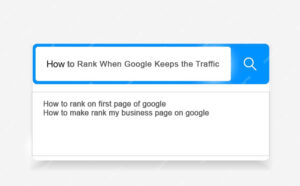In the intricate world of search engine optimization (SEO), link building remains a cornerstone for improving your website’s rank and visibility. Crafting a robust link profile is akin to building a solid foundation for your online presence. However, not all link-building strategies are created equal. In this comprehensive guide, we’ll explore effective link-building strategies that can enhance your rank and delve into the practices that should be steered clear of.
Effective Link-Building Strategies
1. Create High-Quality, Shareable Content
The foundation of any successful link-building strategy is exceptional content. Craft content that is informative, engaging, and valuable to your target audience. When your content is deemed shareable, it naturally attracts backlinks. This approach not only enhances your link profile but also positions your website as an authoritative source in your industry.
2. Guest Posting on Reputable Sites
Guest posting remains a tried-and-true method for building quality backlinks. Seek opportunities to contribute guest posts to reputable websites within your niche. When your content is featured on respected platforms, it not only generates backlinks but also establishes your authority and credibility in the industry.
3. Leverage Influencer Relationships
Collaborating with influencers in your industry can be a game-changer for link-building. When influencers share or link to your content, it exposes your website to a wider audience and often results in quality backlinks. Forge authentic relationships with influencers to create a mutually beneficial partnership that extends beyond a one-time link.
4. Broken Link Building
Identifying broken links on reputable websites and offering your content as a replacement is a smart strategy. This not only aids the website owner in maintaining a polished site but also provides you with an opportunity to secure a valuable backlink. Tools like Ahrefs or Moz can help you identify broken links on relevant websites.
5. Social Media Promotion
While social media signals themselves may not directly impact your SEO, the visibility and sharing potential on these platforms can indirectly contribute to your link-building efforts. Share your content on social media, encouraging your followers to engage and share. Increased visibility often translates into more opportunities for backlinks.
You would like to read: Connecting Social Media And SEO: A Digital Marketing Game-Changer!
6. Create Linkable Assets
Develop content that naturally attracts backlinks, such as infographics, comprehensive guides, or industry reports. These linkable assets act as magnets for websites seeking valuable resources to link to. Ensure these assets are well-researched, visually appealing, and provide genuine value to your audience.
7. Internal Linking Strategy
Don’t overlook the power of internal links. Strategically link relevant pages within your website to distribute link equity and guide users through a seamless navigation experience. Well-structured internal linking not only aids in SEO but also encourages users to explore more of your content.
Pitfalls to Avoid in Link Building
While effective link building can significantly boost your SEO efforts, there are practices that can harm your rankings and reputation.
1. Buying Links
Purchasing links is a shortcut that often leads to long-term consequences. Search engines, particularly Google, penalize websites engaged in buying links. Instead of taking the easy route, invest time and resources in building authentic relationships and creating valuable content that naturally attracts backlinks.
2. Low-Quality Directory Submissions
Submitting your website to low-quality directories can have adverse effects on your SEO. Focus on high-authority and niche-specific directories, avoiding those that exist solely for link-building purposes. Google values quality over quantity when it comes to directory submissions.
3. Over-Optimized Anchor Text
While anchor text is essential for conveying the context of a link, over-optimizing it can raise red flags for search engines. Use anchor text variations and ensure that the text is relevant and adds value to the user experience. Search algorithms favor natural and diverse anchor text profiles.
4. Reciprocal Linking Schemes
Engaging in reciprocal linking, where two websites agree to link to each other, is an outdated and frowned upon practice. Search engines have become adept at identifying such schemes, and participating in them can result in penalties. Prioritize organic link-building strategies that focus on providing value to your audience.
You would like to read: Sudden Fall In Website Traffic? 10 Tips To Improve Your Website Ranking
5. Ignoring Link Quality Over Quantity
In the world of link-building, quality reigns supreme. A handful of high-quality, relevant backlinks will often have a more positive impact than a multitude of low-quality links. Focus on building a diverse and authoritative link profile rather than obsessing over the sheer quantity of links.
Conclusion: Strategic Link Building for Lasting Success
In the ever-evolving landscape of SEO, effective link-building remains an art that requires a delicate balance of creativity, strategy, and ethical practices. By embracing the right link-building strategies and steering clear of pitfalls, you can elevate your website’s rank and establish a strong online presence that stands the test of time. Remember, quality and relevance should be the guiding principles in your quest for a robust link profile.










